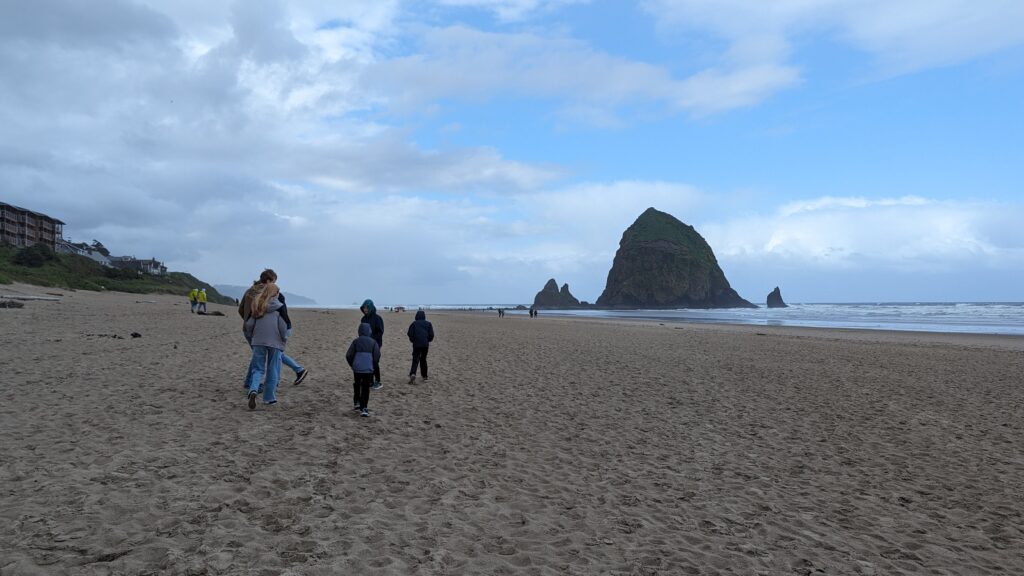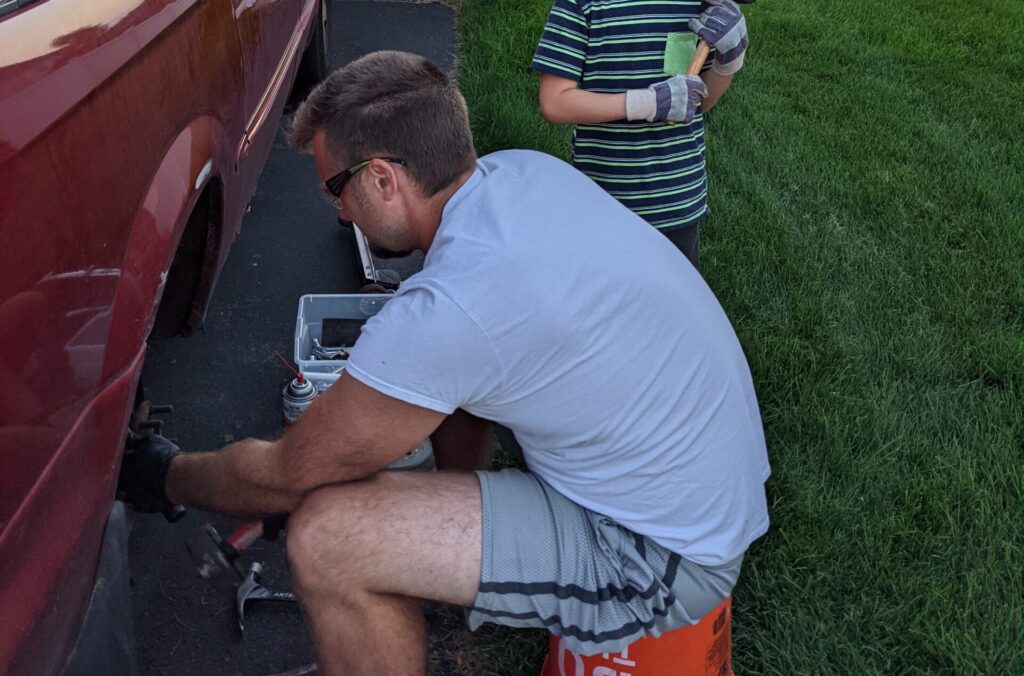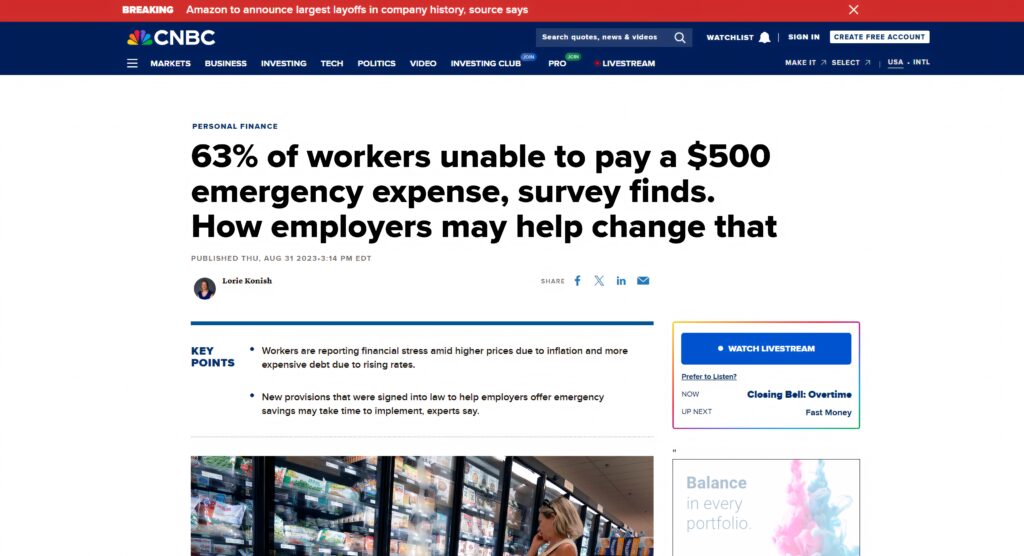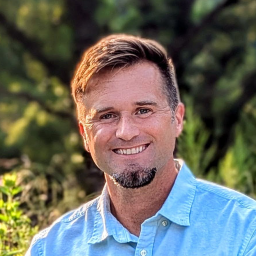You're working extremely hard. You keep trying to earn more money. But somehow it feels like you're making no progress financially.
For many people, their paycheck lands in their account, and before they can even think about it, it's already spoken for. Rent. Groceries. Gas. Insurance. You know the list.
Everything costs more. And you're left wondering, is it just me, or is everyone barely making it right now?
The answer? It's not just you.
I want to spend the next few minutes being very honest about some things that are happening in the economy that you might not be aware of, why it's not going back to the way things were, and most importantly, what we can actually do about it.
What's Really Happening With Our Economy
Let's start with the facts, because what I'm about to share might surprise you.
As of August 2025, the inflation rate in the United States sits at around 2.9%. You might hear that and think it doesn't sound too bad. But that number doesn't tell the whole story.
Food prices are up 3.2% compared to last year. Egg prices alone jumped 36.8% in 2024. Housing costs increased 4.1% in 2024, with shelter costs accounting for about 58% of total inflation. And housing is the biggest expense most of us have.
Here's the thing—when economists say “inflation is slowing,” they don't mean prices are going down. They mean prices are still going up, just not as fast as before. You're still paying more than you did last year. And way more than you did five years ago.
The Part Nobody's Talking About
But there's another piece to this puzzle that most financial advice never mentions. And what's kind of shocking is how much this affects your everyday life without you even realizing it.
The wealthiest 10% of Americans now own 93% of all stock market wealth. That's a record high. Let that sink in for a moment. The top 1%, just 1% of people, own 54% of the entire public stock market. Back in 2002, they owned 40%. In just over two decades, their share grew by 14%.
Here's why this matters for you and me. When the economy “recovers” or the stock market goes up, the vast majority of those gains go to people who already have wealth. The top 10% added $5 trillion to their wealth in just one quarter because of the stock market rally. Meanwhile, regular people are trying to figure out how to afford groceries.
And what's really interesting is this: because so much wealth is concentrated at the top, when we cut back on spending because we can't afford things, it barely affects the overall economy. The wealthy keep spending. The market keeps going. And we keep struggling.
It's frustrating. It's exhausting. And honestly, it can feel hopeless.
But here's what I want you to hear. Just because the current economy can feel like a game that is rigged against you doesn't mean you're powerless.
I understand you, and I can't control inflation. We can't control the stock market. But we can control what we choose to do moving forward.
Getting to the Root of the Problem
This is where I want to offer you real, practical steps that get to the root of the problem. Because most financial advice just scratches the surface. It tells you what to do, but it doesn't address why we struggle with these things in the first place.
It's about our hearts. Our contentment. Our relationship with money and what we believe it can do for us.
So let me walk you through some of the most important steps, and I'm going to be honest with you about areas where we all need to do some heart work.
Finding Peace and Contentment
If we're talking about ways to have more financial security, I would be remiss not to talk about contentment first and foremost. And I don't say that to talk down to you like I'm a parent and you're a child, but it's a message that many of us—myself included—need to continue to reevaluate.
We live in a time when we're constantly being sold more. More stuff. More experiences. More everything. And a lot of us have fallen into the trap of thinking that the next thing will make us happy.
It won't.
Learning to enjoy simple things isn't about deprivation. It's about freedom. My family figured this out years ago. We do some fun things, and we save up for road trips when we can. But most of the time? We're at home. Playing board games. Watching movies. Going to parks. Hanging out in the backyard.

And you know what? Those are the memories my kids talk about. They talk about relationships and quality time, not materialistic things or expensive experiences just for the sake of being fancy or elegant.
Teaching yourself and your family to be content with simple pleasures doesn't just save money—it makes life richer. You stop chasing. You start enjoying.
Being Honest About Your Habits
If you've got an expensive hobby—whether it's shoes, tech gadgets, cars, whatever – it's time to evaluate. I'm not saying you can't have any fun or nice things. But excessive spending on material possessions isn't just hurting your wallet.
It's actually making the inflation problem worse for everyone. When we keep buying things we don't really need, we're signaling to companies that they can keep raising prices.
Investing Your Money
“How can I invest when I'm barely getting by?” I get it. But here's the truth: money you just save loses value over time because of inflation.
I use simple platforms that let you set up automatic contributions to a high-yield cash account or investment portfolio. Over the years, those small amounts have added up. And that money hasn't lost value like it would have sitting in a regular account.
You don't need to be wealthy to start. You just need to start.
The Power of Community
This is not something people commonly bring up in these types of conversations, because we're such an individualistic and, honestly, selfish society—more than we've ever been in the history of the world. But this one is so valuable.
And being a Christian, I won't pretend like there is any other better community to be a part of than a loving, welcoming, Bible-teaching, gospel-centered local church. I could offer no better advice than a community that could provide that type of help. And it's not just financial, it's emotional, spiritual, and practical support in every area of life.
But you can also be more family, friends, and community-minded as well. One example is I learned to work on cars because I knew with six kids, we'd have a lot of vehicles in our future. Now my kids borrow my tools. Friends borrow my tools. And when I need help? People show up.

That's how God designed us to live – not isolated, trying to do everything ourselves, but together.
Building an Emergency Fund
If you haven't learned this lesson yet, you will, the hard way. Life happens. Cars break down. Medical bills come. You need a cushion.
From all the years of research I've done and what I've learned from financial consultants, the safest amount to have in an emergency fund is truly a year's worth of expenses. And I know that takes a very long time to get to, and that should absolutely be in a high-yield savings account that's earning—for sure—more than the current inflation rate in interest.
But do not underestimate the goal of starting and having a set-aside account. And there's nothing to be ashamed of in just getting started. If your first goal is to get $100 saved in there, that is awesome. If you reach $500, that is awesome. You are ahead of 63% of Americans just by having $500 in emergency savings. With $1,000, you can handle a more significant short-term emergency.

So don't underestimate those smaller numbers. When you hear that someone has a year's worth put away in an emergency fund, that takes time to get to. But it's about building the right habits.
Eliminating Debt
I completely subscribe to the Dave Ramsey snowball idea of debt, which is to get rid of the highest interest rate debt first, and then snowball what you were paying for that into the next debt. It's not very complicated, but it's a habit that, if built correctly, will start to destroy the debt you have.
And you have to make sure you have the mindset of not wanting to stay there. You can't keep just adding things on a credit card – that's not money you have. Don't take out loans. I would say minus a mortgage and a car payment if necessary. But if you're in a place where you can't buy a car outright, make sure you're not getting a loan on a brand-new car. Make sure you're getting a loan on a used car that's significantly cheaper, that you could pay off much sooner, and will still last you almost as long as the other one.
It's those kinds of decisions we need to make. Make a plan. Stay consistent. Get it done.
Diversifying Your Income
A lot of financial principles are not that hard to understand. It's a matter of putting them into action. I realized the most important thing about income streams is to increase your income. So how do you do that? You have to provide increasing value to people.
For me, it was increasing my value to my clients that I had and the new clients I acquired. I learned more skills, web design, online marketing, and strategy, so that I could do more for them while still at a fraction of the cost of hiring multiple employees to do those different jobs. They could pay me more because I can do a variety of them very well.
I have learned that a jack of all trades within a smaller subset of skills that you learn really well earns more than a jack of all trades that's too generalized, doing everything mediocre, or a person who is too specific in just one area. The sweet spot is right in the middle. Took me 20 years to learn that, so I hope that can benefit you.
Playing the Long Game
Here's the hard truth: inflation probably isn't going away. Housing supply issues and construction costs continue to drive shelter inflation, keeping overall inflation elevated. Waiting for things to “go back to normal” isn't a strategy.
What works is habits. The small financial habits you build today (whether they're good or bad) will shape where you are in 10, 20, 30 years.
So please hear me out when I say that if you're struggling right now, whatever your age, I don't fault you for that. Living in the United States is expensive. Like, really expensive.
Yes, we need to remember that we live better than the majority of the world. I mean, even the poorest of us live like kings, especially in this day and age. So we have to be realistic that while it is expensive, we do have it really good. So we should be grateful for that. But it doesn't mean the struggle is not real, and the stress that comes with that.
But stop playing the comparison game. Stop scrolling through social media, TikTok, Pinterest, and unintentionally feeding the jealousy or discontentment from what other people have that you don't have.
Just focus on what you can control. Truly learn to be content with what you have. Look around and just be thankful for what God's given you. The material things don't really matter in the long run. It's the people. It's the relationships that matter beyond this life.
So build those good habits. Serve other people well. And you can trust that over time, I've seen it in my own life, those decisions, the way we honor God and steward the finances that he gives us well, it does add up.
And with that, I ask you, what will you do with these 24 hours that you've been given?



